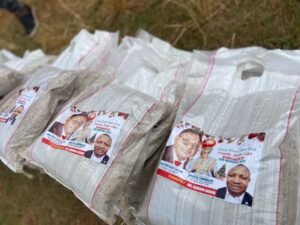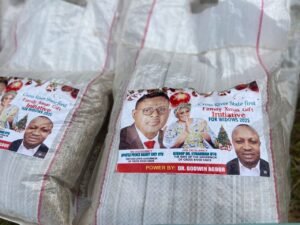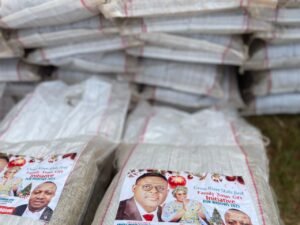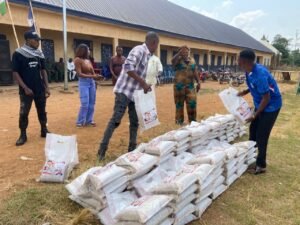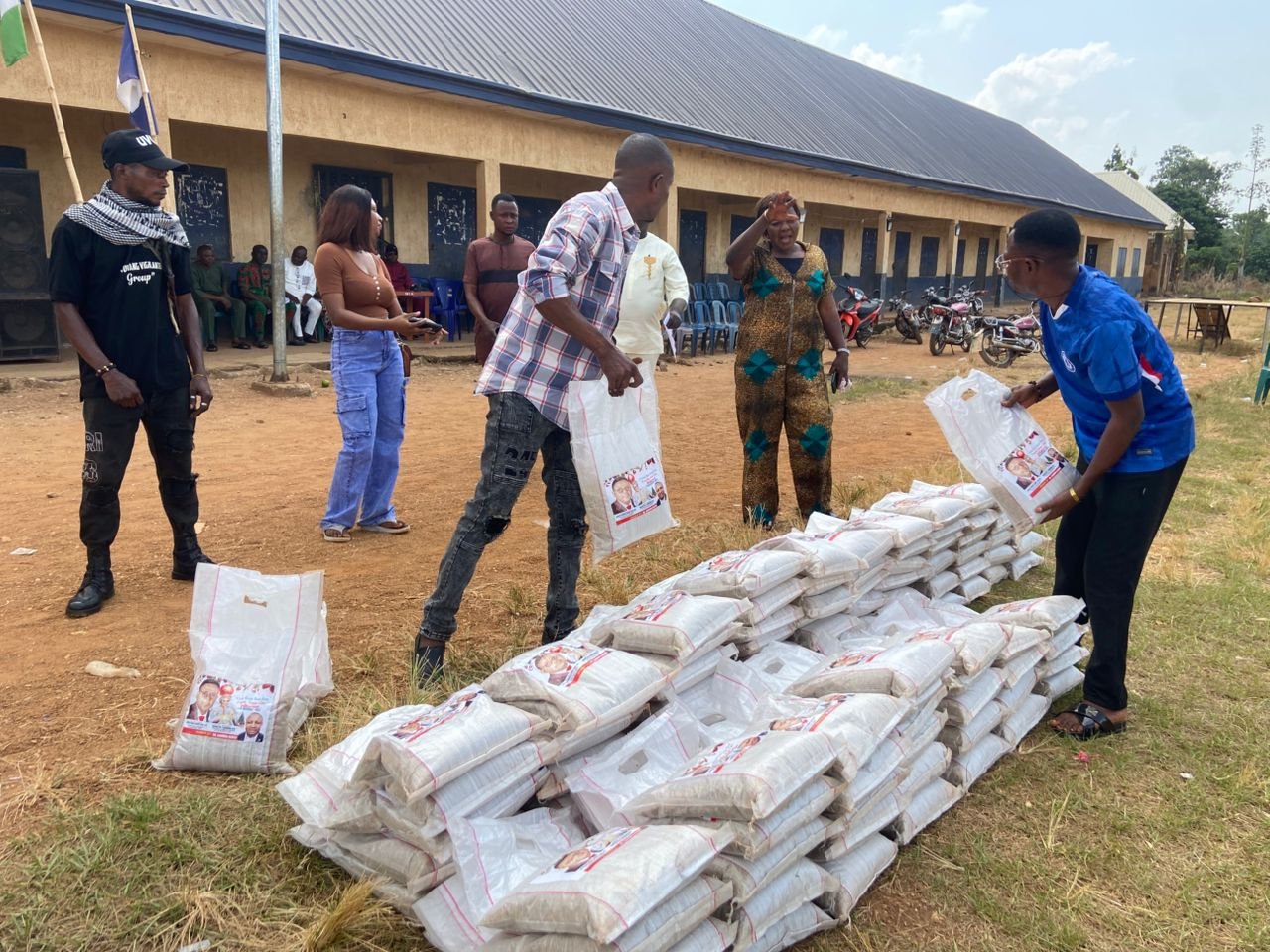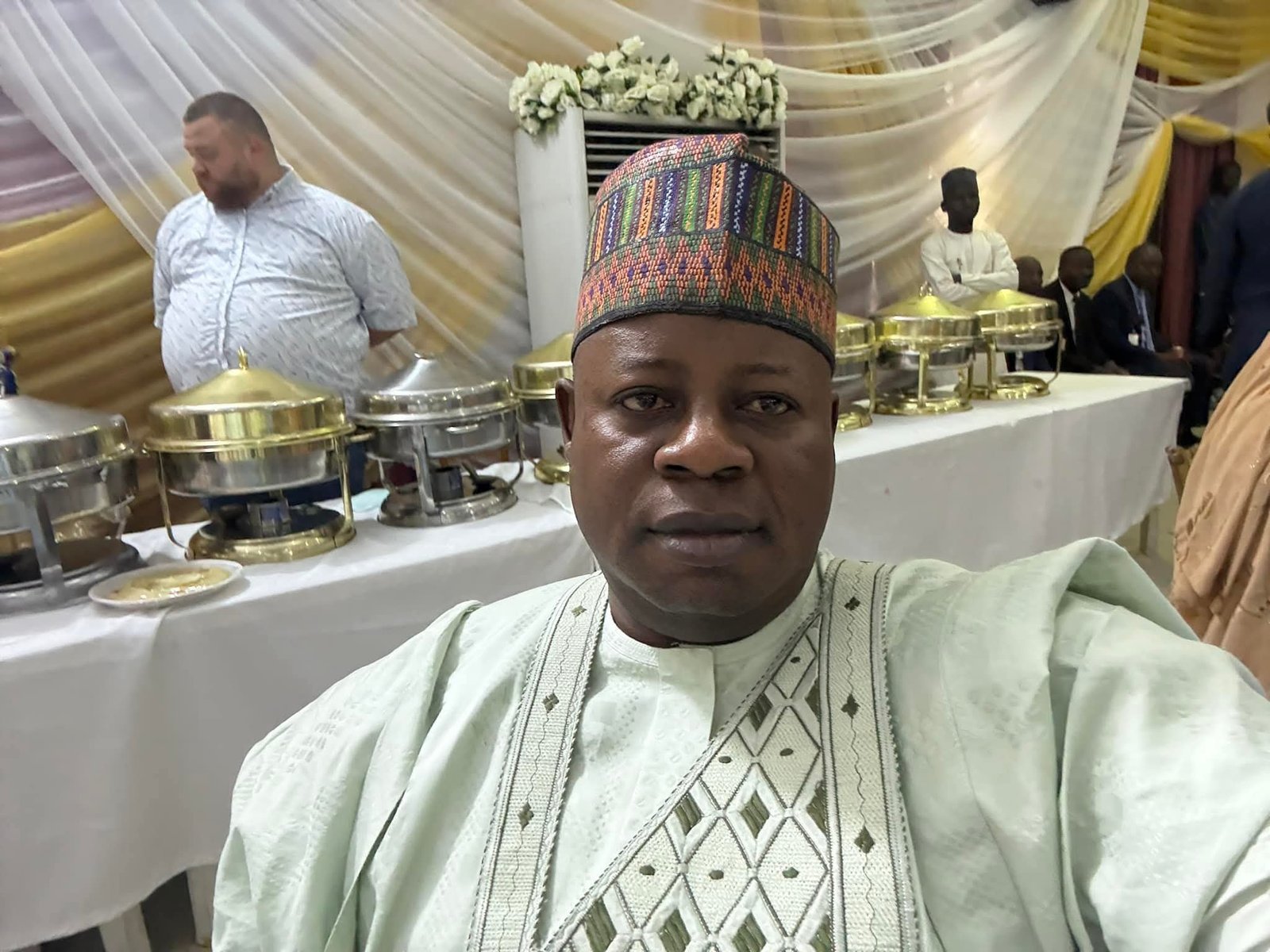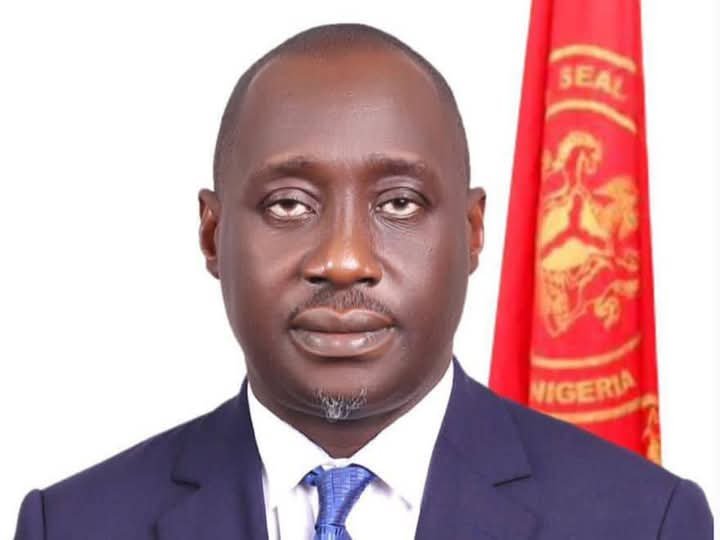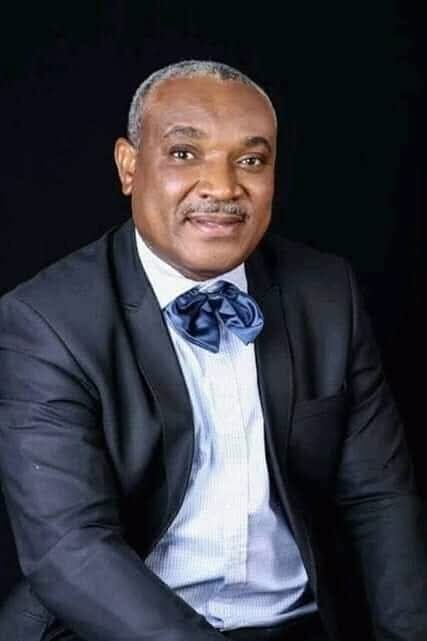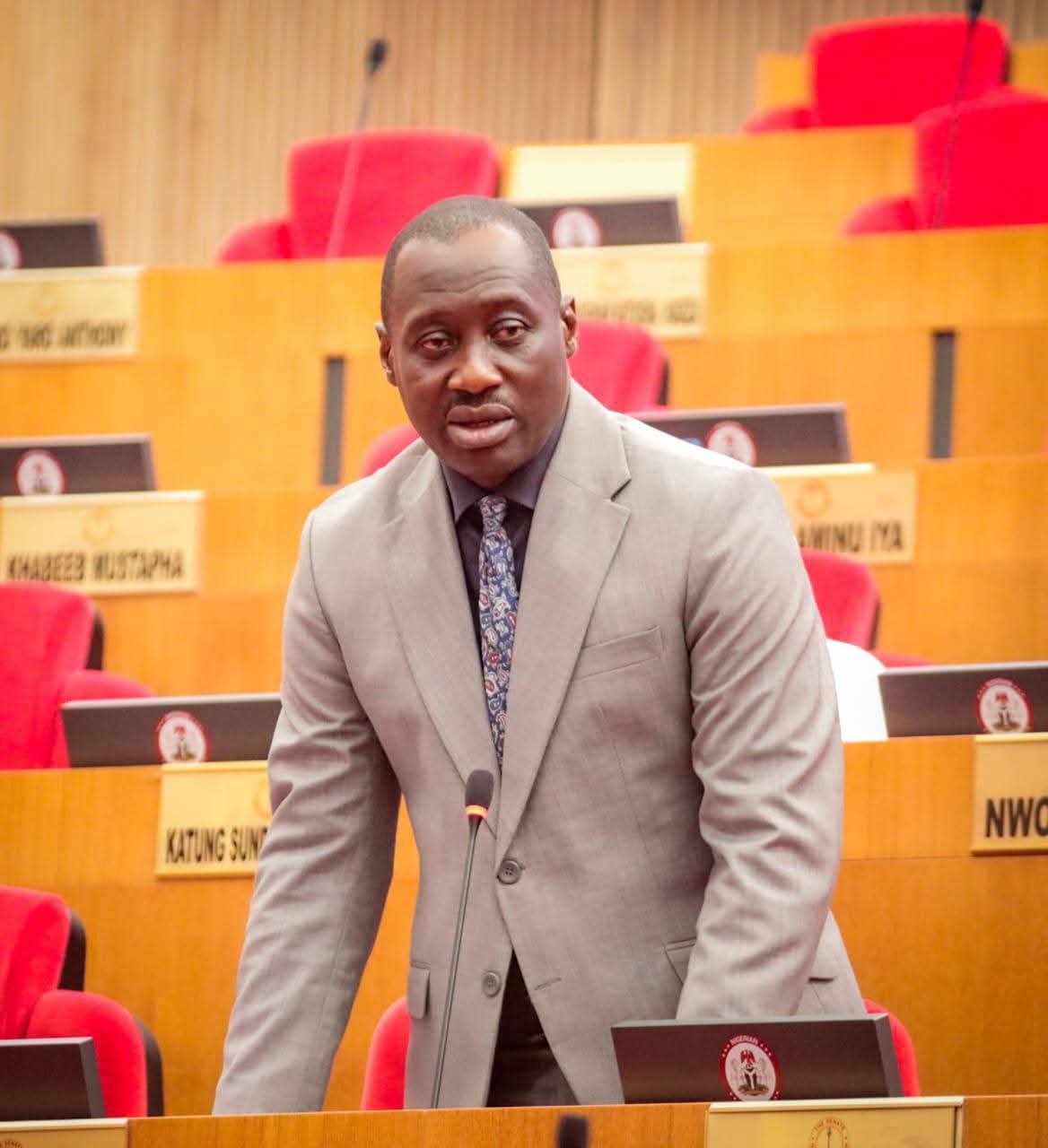Culled from The Sun Nigeri
By Chidiebere Onyemaizu
Chief Okoi Obono-Obla was the chairman of the defunct Special Presidential Panel for the Recovery of Public Property during the presidency of the President Muhammadu Buhari. He was, before the appointment, Special Assistant to the President on Prosecution, Office of the Attorney-General of the Federation. A legal luminary and vocal advocate for good governance and leadership, Chief Obla was a founding member of the defunct Congress for Progressive Change (CPC) and the All Progressives Congress (APC).
In this interview with Daily Sun, he spoke on a wide range of issues, including his bitter experience in President Buhari’s government, the main reason opposition politicians are trooping to the APC, why one-party state is not possible in Nigeria, and his grievances with Cross River chapter of the APC, among other topical issues.
You occupied a very sensitive office in the Buhari administration. Given the manner you left that government, do you regret your participation in it?
Surely, I was hugely disappointed. I believe the minders of the administration never appreciated the courage, diligence, and professionalism with which I handled the responsibilities assigned to me. Instead, they were all out to deal with me and take me out, simply because they perceived me as uncompromising and unbending in the face of their nefarious agenda. I was used merely as a pawn.
The administration was deeply divided, with camps formed by some individuals against others. You can imagine Abubakar Malami, SAN, one fateful day in his office, asking me why I was close to Rotimi Amaechi. He said, “Don’t you know Amaechi and El-Rufai are plotting to topple President Muhammadu Buhari?” I was frozen with shock when he said that, because I had always thought Amaechi was close to him.
Some of your critics describe you as an opportunist. Why would they give such an inelegant tag to a man like you?
I would call those who wrote that miscreants, ‘bad belle’ people who want to smear my name. They are faceless, amorphous, and a cowardly crowd hiding behind the anonymity of the internet to malign me. They cannot stand my confidence, self-esteem, principles, courage and boldness. They foolishly think that, by smearing me, they would succeed in cutting me down to size.
I have taken on certain subterranean forces, including secret cultists lurking around government, illegal gold miners, loggers exploiting the state’s forestry resources, and bad leadership in the local government system. I have consistently advocated for transparency and accountability, and these reactionaries are not happy—they want to undermine me. But everyone who truly knows me understands that I am the direct opposite of the word ‘opportunist.’ They virtually dismiss those accusations as nothing more than the rantings of a rat.
Coalition by opposition politicians, gale of defections to the ruling party, the APC, and fear of Nigeria becoming a one-party state are the issues dominating political discourse in Nigeria presently. What are your views on the prospects of Nigeria becoming a one-party state?
I am not worried, and I do not believe that Nigeria is heading toward a one-party dictatorship. Such a culture or system is alien to the behavior, attitudes, and even the cultural practices of the diverse peoples that make up Nigeria. The military dictatorships we experienced from 1966 to 1979 and from 1983 to 1999 were imposed by force and driven by militarism, with their draconian laws and decrees. Yet, they were stoutly resisted. Therefore, in the absence of such authoritarianism and its instruments, I cannot foresee even a feeble attempt at imposing a one-party dictatorship succeeding—especially given global trends and developments. Nigeria is not a one-party state. Anyone arguing otherwise is not conversant with Nigerian constitutional and electoral jurisprudence.The Constitution of Nigeria, which is the grundnorm—the fundamental and supreme law of the land—has not abolished the country’s multi-party status. Any action or assertion contrary to the constitution is, by virtue of its supremacy, null and void to the extent of its inconsistency. There is no cause for alarm. What we are witnessing is evolutionary democracy in a nascent democratic state—an unfolding process that will resolve itself when it runs its full course.
What do you think is driving elected office holders from their parties to the ruling party? In Cross River, for example, virtually all opposition federal and state lawmakers have defected to the APC…
The defection of elected office holders from their parties to the ruling party is a reflection of the stage of evolution and development our country is currently undergoing. Nigeria is in a phase of political metamorphosis, much like any society inhabited by human beings. Humans, as living organisms, share similar mindsets, attitudes, and behavioral patterns shaped by genetics, biology, chemistry, politics, and social forces. These forces are interlocked and interconnected, producing the dynamism we see manifesting in politics—defined as the science of who gets what, when, and how. It is the authoritative allocation and distribution of economic resources among a populace with varying levels of need, all ultimately striving for one essential thing: Food.
This struggle creates momentum, driving politicians and citizens alike to seek their share of the national cake. Hence, we observe politicians gravitating toward where the action is. As our democracy matures and stabilises, ideological clarity will emerge. People will begin to align with ideologies that resonate with their worldview—how they believe society should be organised—and with the economic and social forces that shape which political party best suits their temperament and trajectory.
Cross River State is a microcosm of Nigeria. Everything that plays out at the national level naturally impacts it. The behavior and attitudes of the people here mirror what is seen nationally. At the national level, politics is fluid; people do not cling to ideological lines. Political parties are unstable, fragmented, and often torn by personal conflicts, clashes of interests, and egos. This fragmentation can lead to implosions, as seen in parties like the PDP and others.
Moreover, the constitutional framework guarantees every citizen the right to freedom of movement and association. You cannot cage someone with political ambition in a party embroiled in crisis, splintering in multiple directions, and with no guarantee of cohesion or capacity to field candidates in the next election.
Politicians will always defect, and it is not a new phenomenon in the Nigerian political firmament. Indeed, decampment or defection has always been a characteristic of Nigerian politics. It began as far back as 1953 when the defunct National Council of Nigerian Citizens and Cameroon (NCNC) won the old Western Nigeria regional election. Dr. Nnamdi Azikiwe, its leader, had the ambition of becoming the Leader of Government Business (Premier) in Western Nigeria. However, on the day of the election of the leader of the party that won the largest number of seats—following the Westminster style of parliamentary democracy then in practice—there was a massive defection by parliamentarians elected on the NCNC platform to the rival Action Group, leading to Dr. Azikiwe’s defeat.
Consider someone like Atiku Abubakar, who has defected to different political parties multiple times. In 2006, he left the PDP for the Action Congress. In 2010, he returned to the PDP from the Action Congress of Nigeria. Again in 2014, he defected from the PDP to the APC. In 2018, he left the APC and rejoined the PDP, and then in 2025, he defected to the ADC. Even Peter Obi has not been immuned to the defection fever. In 2006, he contested under the APGA platform and was elected Governor of Anambra State. He left APGA to join the PDP in 2014. In 2023, he defected to the Labour Party. However, in 2025, we have seen him romancing the ADC, and he may likely defect to the party soon. Therefore, defection is part of the political behavior of Nigeria’s governing political elites. Even the opposition was optimistic that there would be a massive defection of APC members into the so-called coalition party, the ADC. There is nothing wrong with politicians defecting or exercising their right to freedom of movement and association. Even in mature democracies like the United States and the United Kingdom, politicians move from one party to another. I understand President Donald Trump was a Democrat until around 2015 when he left to join the Republican Party, foreseeing his prospects of securing the presidential ticket. Recently, in the United Kingdom, Danny Kruger—Daniel Rayne Kruger—is a British politician who has been the Member of Parliament (MP) for East Wiltshire, previously Devizes, since 2019. Kruger was elected as a member of the Conservative Party but defected to Reform UK in September 2025.
So, there is nothing new about defection. Is it because the current wave of defections is from the PDP and other opposition parties to the APC that tongues are wagging? Was it not the ADC that previously boasted there would be a massive movement of APC members to its fold? So now that we are witnessing a reverse defection into the APC, the opposition is making heavy weather of it? I see hypocrisy in the stance of critics of defections into the APC. The reality is that the APC is the largest, most cohesive, and most organised political party. And when a fruit is ripe, it naturally attracts a beehive of bees or swarms of insects eager to feed on its nectar.
Your party, the APC has been accused of engineering crisis in opposition parties with the view to emasculating and weakening them so that by 2027, they will be too weak to mount an effective and credible challenge to the APC. How do you respond to this?
The allegation is threadbare, idle, laughable, ridiculous, and wishy-washy, and therefore cannot be substantiated. It is a fundamental principle of the law of evidence that he who asserts must prove. The burden, therefore, rests with the opposition to prove that the crises within their platforms were instigated or caused by the APC. Is it the APC that caused Atiku Abubakar to reject the provision in the PDP Constitution which stipulates that the presidential nomination ticket must rotate between Northern and Southern Nigeria? His refusal is the remote trigger that precipitated the implosion in the PDP, leading governors of Akwa Ibom, Delta, Enugu, Bayelsa—and possibly others—in exercise of their constitutional right to freedom of association and movement, to defect to the APC. Mark you, these governors, who are desirous of contesting for a second term, are apprehensive that the crisis in the PDP may jeopardise their electoral chances in 2027. They may also be caught in legal entanglements arising from the fallout of different factions within the party, each claiming to have its own National Chairman and National Secretary.
Is it the APC that caused the crisis in the Labour Party, which has splintered into Julius Abure and Senator Nenadi Usman factions?
For credible and acceptable electoral process, what advice do you have for the new INEC Chairman, Professor Joash Amupitan?
I believe Professor Joash Ojo Amupitan is an excellent choice and possesses all it takes to serve as the country’s electoral umpire. I have known him since 1989, when he joined the Faculty of Law at the University of Jos as a young lecturer—the same year I graduated. He is a Professor of Law and a senior lawyer, and the role of INEC Chairman essentially involves managing the country’s electoral laws and the Constitution as they pertain to electoral matters. His deep familiarity with the law, the Constitution, and extant regulations gives him a distinct advantage to perform effectively. I am confident he will succeed—provided he is not sabotaged by the system in Nigeria, which often resists radical change and pushes back against reformers who are firm, uncompromising, straightforward, and patriotic. He should also assemble a team that shares his philosophy, integrity, and patriotism—one that can work with him to identify and possibly isolate those who do not embody the qualities I have outlined above. I am also pleased that he may begin his tenure with a revised Electoral Act, which the National Assembly is currently working to review. This new Act is expected to incorporate several recommendations made by the courts while adjudicating the numerous electoral disputes that plagued the 2023 general elections.
President Tinubu has been accused of Yorubanisation of his government. Looking at his appointments, would you say he has been fair to all sections of the country, including your state, Cross River?
I do not subscribe to such categorisation of Mr. President, and the allegation is simply untrue. What we are witnessing is the Nigerian factor playing out. In Nigeria, we have a very vicious and unpatriotic elite that clings tightly to the country’s fault lines, using them as leverage to pursue personal interests. When they fail, they resort to stoking the embers of division and dichotomy to overheat the system.
However, the evidence on the ground suggests otherwise. Latest data from the Federal Character Commission shows that the North-West and South-West have the highest number of ministers in President Tinubu’s cabinet, with 11 each—representing 22.9 percent of the 48-member team. The North-Central follows with eight Ministers (16.6 percent), while the North-East has seven (14.5 percent). The South-South and South-East have six (12.5 percent) and five (10.4 percent) ministers respectively.
Beyond the cabinet, the data reveals that the North-West holds the largest share of federal leadership appointments, with 157 positions or 22.1 percent. The North-Central zone has 139 positions (19.5 percent), and the South-West follows closely with 132 (18.5 percent). The North-East accounts for 105 positions (14.7 percent), while the South-South and South-East have 91 (12.8 percent) and 88 (12.4 percent), respectively
What is your view on the emergence of ADC as a coalition platform for opposition politicians? Do you see the ADC unseating the APC and President Tinubu in 2027?
I am not enthused by the fact that the ADC has been invaded and hijacked by swarms of internally displaced politicians from the APC, PDP, and other political parties—taking advantage of the reality that the ADC has long remained on the fringe of the Nigerian political spectrum, lacking momentum, traction, and appeal to the Nigerian electorate. This is despite the fact that the party is over 20 old—older, in fact, than the APC, which is just 13 years old.The hijacking of a party and the supplanting of its leadership by these internally displaced, vexatious politicians—many of whom were once Vice Presidents, Governors, Speakers of the House of Representatives and State Assemblies, Ministers, and other top government officials over the past 25 years—in a very undemocratic manner, is both unsettling and troubling. Doing so under the guise of forming a coalition that is incongruous with the prevailing presidential system of government we currently practice is a huge disappointment. It starkly and glaringly demonstrates that the ADC is in disarray, troubled, and indeed has its engine knocked even before takeoff. We saw how the ADC was thoroughly routed in the recent by-elections held across nearly twelve states—a clear barometer for gauging how organized the party is and whether it poses any credible threat to the APC in 2027.
The realignment of political forces and the coming together of regional blocs that have historically been at cross purposes—now united under the banner of the APC—is a strong indication that President Bola Ahmed Tinubu is poised for a landslide victory in 2027.Consider the old Eastern Region, which for the past 70 years has been politically polarised, now coming together with Cross River, Akwa Ibom, Bayelsa, Rivers, Enugu, Imo, and Ebonyi States all in the APC. Only Abia and Anambra States remain outside, and even then, the body language of Governor Soludo suggests that Anambra may be inclined to vote APC.
Furthermore, Edo and Delta States—formerly part of the Mid-Western Region and historically aligned with the old Western Nigeria—are now leaning towards the APC, aligning with their traditional regional allies in the South-West. From every indication, Kano State—the political heavyweight of the North-Western Region with its massive voting population—may also swing fully to the APC before 2027.
You are a vocal critic of bad governance and leaders, and you also shower praises on leaders when they do the right thing.Given the current economic and security situations in the country, would you say that President Bola Tinubu has fulfilled his campaign promises, met the expectations of the majority of Nigerians and then deserves re- election in 2027?
I am a realist, pragmatic, radical, and conservative all rolled into one. I am therefore an enigma and cannot be pigeonholed into any particular spectrum of the political divide. You are right to suggest that sometimes I behave as a critic and activist who hits political leaders and the governing elite severely. Yet, in another breath, I can sound like a political conservative when I commend leadership that aligns with my ideological inclination and taste.
It is too early for any fair-minded person who is conversant with Nigeria’s political trajectory and economic history to dismiss what President Bola Ahmed Tinubu has achieved in the two years of his administration. The country was at its nadir—an economic quagmire. In that context, the President has performed miraculously well and pulled the country back from the brink of catastrophic collapse.
We were dealing with an economy so regulated that, month after month, the country had to borrow money just to pay salaries and to shore up the national currency—keeping it afloat to enable imports from abroad. Trillions of naira were wasted on petroleum subsidies paid to phantom importers of petroleum products. President Tinubu, through uncanny and astute financial and economic wizardry, floated the naira, allowing it to be subject to the vagaries of demand and supply rather than burning billions of dollars to prop it up artificially.
I am also impressed by the reforms he has carried out in taxation and revenue generation. By August 2025, the country had already realized the revenue it projected for the entire year. Furthermore, the inflationary trend that was running riot about two years ago—spiking at nearly 33 percent —has dropped to 20percent. We cannot shout “Eureka!’ just yet, but we are gradually inching toward economic recovery.
Yes, there are still difficulties and hardship. But as the President completes his third and fourth years in office, we will be better positioned to objectively and fairly gauge his performance and juxtapose it with his electioneering campaign promises. That said, he has already fulfilled several of them: the introduction of student loans, the creation of a credit corporation, the floating of the naira, the withdrawal of subsidies, the granting of autonomy to local councils, and the initiation of constitutional reforms to create state police. Certainly President Bola Ahmed Tinubu has demonstrated great leadership ,bold and audacious reforms and derserve a second term.
It has been suggested that the National Assembly is a drain pipe and too expensive for a struggling economy like ours. Do you subscribe to the call for the scrapping of one of the chambers of the the National Assembly to make it unicameral?
Nigeria is a heterogeneous nation—a mosaic of complexities with numerous fault lines, and the constant push and pull of centripetal and centrifugal forces manifesting in fissiparous tendencies that are always interplaying. Ideally, this makes it a fertile ground for a bicameral legislature at the federal level—one that reflects both population and equality, ensuring balance and preventing any hiatus that could threaten the country’s national interest and corporate existence.Taking these realities into account, I believe a bicameral legislature best suits the country’s temperature, temperament, and heterogeneous nature. However, the economics of managing and maintaining such a large legislature—comprising 504 members in the National Assembly—poses a significant challenge. How do we balance these two diametrically opposed realities? That is the question.
I would rather advocate for a part-time legislature, where members are entitled only to allowances for the days they sit. Outside of their legislative duties, they could continue practicing their professions—be it law, medicine, pharmacy, accounting, or others. This model would free up a huge amount of resources currently spent on maintaining and paying the salaries and allowances of full-time legislators.
Some Nigerians argue that the presidential system of government is not suitable for a diverse country like Nigeria, hence the clamour for a home-grown system of government that aligns with our socio-political realities and peculiarities.what is your view on this?
I do not agree with the view that a heterogeneous country like Nigeria is ill-suited for a presidential system of government. On the contrary, a country marked by ethnic, geographical, religious, and cultural diversity needs a leader who sees the entire nation as his constituency. During electioneering, such a leader is compelled to traverse the length and breadth of the country to canvass for votes from all segments of the population. The requirement that a presidential candidate must secure at least two-thirds of the votes cast across all regions or states ensures that the eventual winner has broad national appeal. This mechanism prevents the emergence of a parochial or sectional leader known only within his immediate region—one who might be handicapped in uniting the various centripetal, centrifugal, and fissiparous forces that constantly threaten to pull the country apart.
This was not the case between 1954 and 1966, when Nigeria operated a parliamentary system of government. The Prime Minister, as the leader of the party with the majority in parliament, emerged from a particular constituency and was primarily known within that region. His political base was largely regional, and he relied heavily on the support of his party members in parliament to assume office. This system proved inadequate for Nigeria’s heterogeneous nature and contributed to the crises that tore the First Republic apart. These tensions culminated in the military coup of 15 January 1966, followed by a counter-coup on 29 July 1966, which plunged the country into turmoil and eventually led to the tragic civil war from 1967 to 1970.
Learning from this harrowing experience, the Constitution Drafting Committee set up in 1976 was tasked with laying down the political blueprint to be presented before the Constituent Assembly for debate and the formulation of a new constitution. This was in preparation for the return to civilian rule as the military planned to return to the barracks. The committee concluded that the parliamentary system was not ideal for Nigeria’s complex diversity and therefore adopted the presidential system. In this system, the president serves as both Head of State and Head of Government, vested with a compendium of powers to unify the country and check the divisive forces—centrifugal, centripetal, and fissiparous—that threaten national cohesion.
A few days ago, the House of Reps indicated it would review the request for the creation of 55 new states.Do you think Nigeria needs new states, including Ogoja State out the present Cross, even when most of the existing states can barely stand on their feet economically?
The proposal by the House of Representatives to review the request for the creation of 55 new states is, in my view, a joke taken too far. The United States of America, which is almost the size of both Central and West Africa combined, has only fifty states. I therefore, see no political or economic justification for creating 55 additional states on top of the existing 36, bringing the total to 91 states plus the Federal Capital Territory, Abuja. Where will we generate the resources needed to sustain the massive bureaucracies that will emerge from such an unwieldy number of states? All I see is the ambition of the governing elite to carve out more fiefdoms—centres for looting public resources—to satisfy their insatiable appetite for power and influence. Realistically, Nigeria may need two, or at most five, new states to address some of the imbalances within the six geopolitical zones of the country. Beyond that, there should be a constitutional provision barring the creation of new states for the next 50 years.
You have often been quoted as saying that you brought APC to Cross River but some party chieftains dispute this. Can you throw more light on this?
I couldn’t have said that I singlehandedly brought APC to Cross River State. But I will categorically state that we brought APC to Cross River State. And when you follow up by asking me, ‘Who are the we?” I will proceed to answer that we are members of the defunct Action Congress of Nigeria (ACN), the defunct All Nigeria People’s Party (ANPP), the defunct Congress for Progressive Change (CPC), the All Progressives Grand Alliance (APGA), and the Democratic People’s Party (DPP). These parties existed in Cross River State prior to 2013, when they came together to merge and form the APC. I was the pioneer National Legal Adviser of the CPC, later the National Deputy Secretary of the CPC, and also served as Secretary of the CPC Merger Committee. During the merger talks in Abuja, all the merger committees of ACN, ANPP, CPC, APGA, and DPP collapsed into a Joint Inter-Party Merger Committee. I was appointed one of the four Co-Secretaries drawn from these legacy parties to manage the secretariat of the merger process.
APC was registered by INEC on 31 July 2013, and all the legacy parties formally dissolved themselves. In Cross River State, we constituted an APC Interim Management Committee. Honourable Alex Itek was the Chairman, and I was a member, alongside others including Hon. Cletus Obun.Therefore, when I say we, I mean all the members of these legacy parties—people like Ntufam Hilary Etta, Hon. Alex Itek, Hon. Cletus Obun, Hon. Esther Bepeh, Barrister Mary Ekpere, Hon. Sly Nsa, Hon. David Okon, Dr. Usani Usani, Dr. Kalita Aruku, and a host of others too numerous to mention. We were the pioneer, foundational leaders and members of the APC in 2013, 2014, 2015, and up to 2017. In 2017, another set of leaders defected from the state PDP to join the APC. Then in 2021, yet another group from the PDP joined the APC. I therefore owe no one any apology for asserting that we brought APC to Cross River State. It is the truth of the matter, and anyone who disputes this assertion is simply not being truthful.
You contested for the APC Cross River Central Senatorial district ticket with former House of Assembly Speaker, Eteng Williams Jones who eventually won and now represents you in the Senate. Recently you made a Facebook post critical of him which was suggestive of disappointment. What is the issue between the both of you? Any plan of contesting against him in 2027?
Yes, I contested against him. At that time, he was barely one year old in the APC, having joined in July 2022, whereas I had been a senior member since 2013. I was a member of both the National Working Committee and the Board of Trustees of the old CPC—one of the legacy parties that merged to form the APC—and I was also one of its negotiators during the merger talks that led to the formation of the APC in 2013. The primaries were heavily manipulated and skewed in his favour. In the end, two of the aspirants, including myself, challenged the outcome in the Federal High Court. I withdrew my case to preserve the unity and cohesion of the party, but the other aspirant continued with hers. Eventually, the results of the primaries were nullified and a fresh primary was ordered. I chose not to participate in the rerun because I realistically believed the same manipulations that occurred in the first round would repeat themselves.Nonetheless, I worked for the Senator to win. He won in my community, which comprises four wards in Yakurr, including my own. However, in the Senate, he has not demonstrated any resolve. Let me give you an example: He is from Mkpani Agoi Council Ward, which faces serious challenges, including insecurity due to the influx of illegal gold miners from the Sahelian region of West Africa. To date, the Senator has not tabled a motion in the Senate to address this issue, even though mining falls within his jurisdictional competence as it is a federal matter.
Therefore, I am disappointed with such mediocre, nonchalant, indifferent, and uninspiring representation—marked by ambivalent and reluctant leadership.
I will not contest again because the political ecosystem within the APC in the state is foggy for me, and I do not believe the powers that be would make the ground fertile for my candidacy. I do not want a repeat of what happened to me in 2023. I sold my only house in Calabar—which I began building in 2002 as a young practising lawyer—to enable me to purchase the nomination form, only for the primaries to be rigged against me. Instead, I will throw my support behind a savvy young man from Ugep in Yakurr LGA, whom I believe has what it takes to challenge and defeat Senator Eteng in the primaries.
How would you assess the Otu administration?
He inherited a state where virtually every facet of society and the lubricants of public administration had been broken and left in disarray. The economy of the state was entirely rentier and in shambles.
The civil service, which once stood as one of the finest in the country, was also severely affected—plagued by indiscipline, disorder, low morale, and deep divisions along ethnic, tribal, and sectional lines. It was virtually devoid of quality and experienced personnel due to the absence of recruitment for nearly two decades. Those who had retired, passed away, or left were never replaced. The Civil Service Commission, constitutionally mandated to uphold the ethos and traditions of the service, was also compromised by the appointment of politicians who knew next to nothing about its processes, procedures, and ethics—unfortunately installed by the previous administration.
Pensioners and retirees were owed for several years. There was a shortage of petroleum products, and people found it extremely difficult to move around and conduct their businesses.
However, within two years of assuming office, Governor Bassey Edet Otu has amply demonstrated that he knows his onions and has, to a considerable extent, restored the dignity and confidence of the people. He has managed the state’s economy fairly well and has aggressively addressed the massive infrastructural deficit that plagued the State.
I particularly appreciate his foray into the agricultural sector, which holds great potential as a pillar of the economy. He has invested in it aggressively. I also commend him for fulfilling several of his campaign promises, including the establishment of the University of Education and Entrepreneurship in Akamkpa, the transfer of the Institute of Management and Technology, Ugep to the Federal Polytechnic, Ugep, and the reestablishment of the College of Agriculture and Forestry in Obubra to provide much-needed human resources in agriculture, fisheries, livestock, and even conservation.His venture into the green economy is also commendable and could become a significant revenue base for the State if properly managed.
All said and done, he has performed admirably and deserves a second term. However, a proper evaluation of0his first term in office. That will be the true determinant of whether Cross Riverians should support his bid for a second term to complete the roadmap he envisioned in his policy agenda known as ‘The People’s First.’
What is your greatest regret and greatest joy in life?
My greatest regret in life was accepting the role of Anti-Corruption Czar in Nigeria, believing earnestly that the government was genuinely committed to tackling corruption and graft. I went all out to fight the menace squarely, stepping on powerful toes—even those of the very people who appointed me and assured me that my work was the last-ditch effort to turn things around. But they turned against me, fighting me dirty and throwing me into the lion’s den to be devoured by the promoters and patrons of grand corruption and their cohorts. I was hounded, victimised, scandalised, persecuted, and witch-hunted—for nothing. This is someone who never added a single asset to what he declared upon entering government, yet was vilified instead of being commended. My greatest joy in life came when my first son was born, after my wife had endured the heartbreak of several lost pregnancies over nearly four years of our marriage.
The Sun Nigeria
No. 2, Coscharis Street, Kirikiri industrial Layout, Apapa, Lagos.
© 2025 The Sun Nigeria – All Right Reserved.


